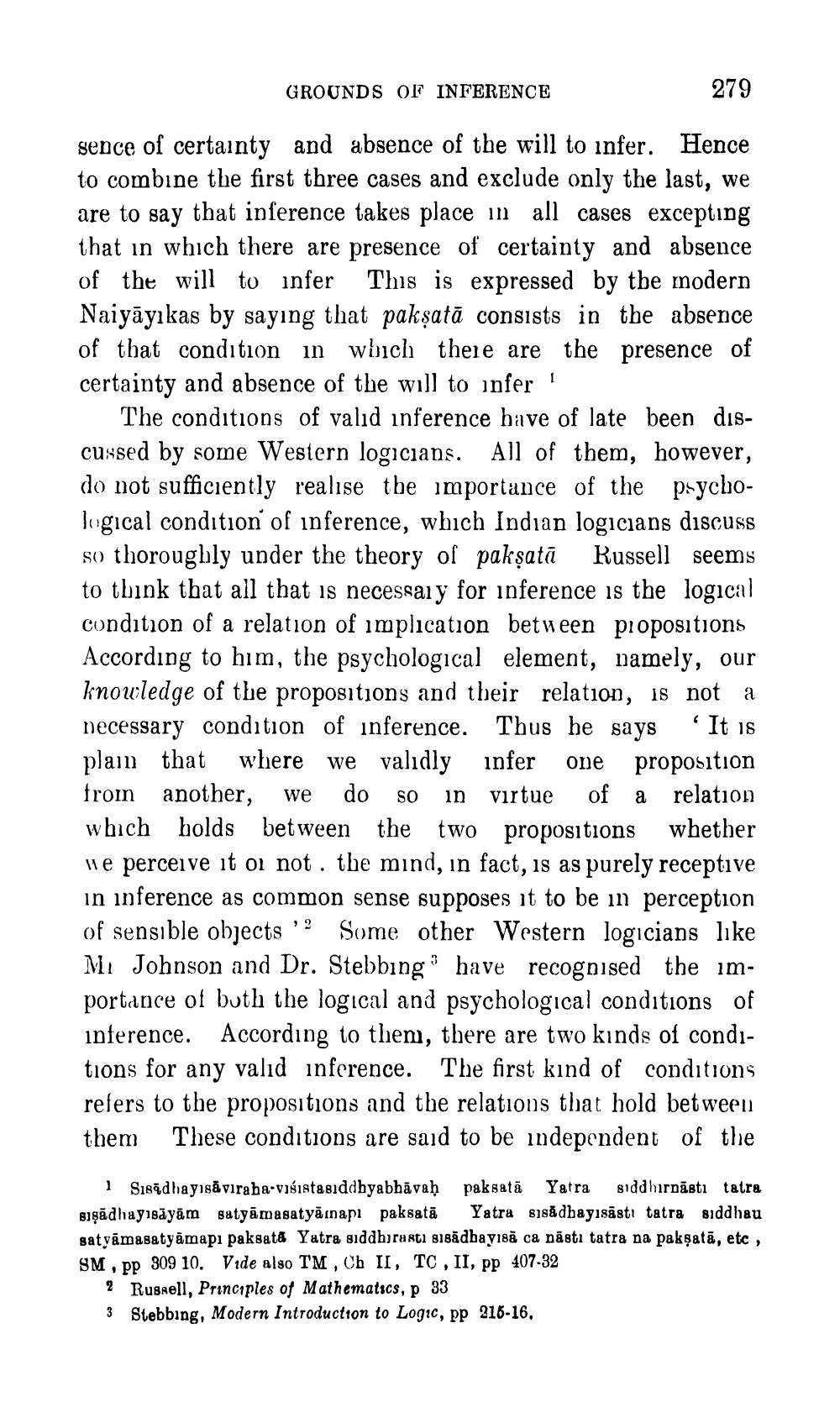________________
GROUNDS OF INFERENCE
279
sence of certainty and absence of the will to infer. Hence to combine the first three cases and exclude only the last, we are to say that inference takes place in all cases excepting that in which there are presence of certainty and absence of the will to infer This is expressed by the modern Naiyāyıkas by saying that paksatā consists in the absence of that condition in wbich there are the presence of certainty and absence of the will to infer !
The conditions of valid inference have of late been discussed by some Western logicians. All of them, however, do not sufficiently realise the importance of the psychological condition of inference, which Indian logicians discuss so thoroughly under the theory of pakşatā Russell seems to think that all that is necessary for inference is the logical condition of a relation of implication between propositions According to him, the psychological element, namely, our knowledge of the propositions and their relation, is not a necessary condition of inference. Thus he says 'It is plam that where we validly inferone proposition from another, we do SO in virtue of a relation which holds between the two propositions whether ne perceive it or not. the mind, in fact, is as purely receptive in inference as common sense supposes it to be in perception of sensible objects ?? Some other Western logicians like M. Johnson and Dr. Stebbing have recognised the importance of buth the logical and psychological conditions of inference. According to them, there are two kinds of conditions for any valid inference. The first kind of conditions refers to the propositions and the relations that hold between them These conditions are said to be independent of the
1 Sisādhayısāviraha-vjśistasiddhyabhāvaḥ paksată Yatra siddhirnāsti tatra Bışādhayisāyām satyāmasatya inapi paksatā Yatra Bisādhayısāsti tatra siddhau gatvāmasatyāmapi paksata Yatra siddhiraati sisādhayisā ca nāsti tatra na pakşatā, etc, SM , pp 309 10. Vide also TM , C II, TC, II, pp 407-32
2 Russell, Principles of Mathematics, p 33 3 Stebbing, Modern Introduction to Logic, pp 216-16.




